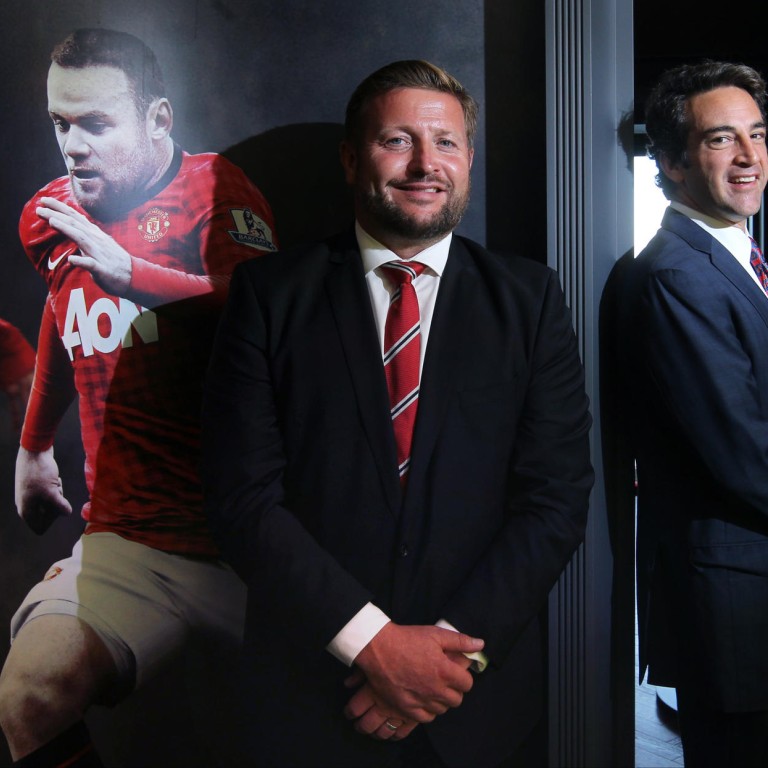
Individual stars fall out of favour with sponsors
In view of the image risks arising from personal scandals, companies find it's better to sponsor events or teams to increase product awareness
Companies are increasingly preferring to sponsor events or teams rather than individuals because of concerns that personal scandals could create a public relations nightmare.
"We would not plan to sponsor an individual star or sportsperson as that is a risky business. If the star or sportsperson had any personal scandal such as taking drugs, all the money you paid would be wasted," said Joseph Tong Tang, executive director of Sun Hung Kai Financial.
"It is much better to sponsor a sports event that will bring a healthy image to our company. If the event is an international competition, it will attract people from around the world to come here and that is good for our brand."
Sponsorships cost money, but other marketing activities also cost money
The Hong Kong-based brokerage and financial firm has joined hands with Cathay Pacific Airways to sponsor squash tournaments in recent years. With a seven-figure deal, the event was named the Cathay Pacific Sun Hung Kai Financial Hong Kong Open.
Tong said paying to sponsor sports competitions, music concerts or dance performances would cost a similar amount. He noted that after the doping scandal surrounding cycling champion Lance Armstrong earlier this year, firms were not keen on individual sponsorships.
Armstrong was sued in May by the US Department of Justice to recover at least the US$40 million the US Postal Service paid to sponsor his team after he admitted earlier this year using steroids and other drugs to win the Tour de France race seven times.
US insurance broker Aon has opted to sponsor well-known football team Manchester United since 2009 to help build its international brand. In Asia, South Korea's Samsung also sponsors the English Premier League.
Aon signed an eight-year deal with Manchester United in April to sponsor the club's training ground and training kit. The English Premier League leaders' Carrington training ground will be renamed the Aon Training Complex.
Media reports said Aon would pay about £16 million (HK$190.6 million) per year for the deal. The firm has been a shirt sponsor for Manchester United since 2009 until the end of the 2013-14 season.
The new Aon deal includes sponsoring Manchester United's tours abroad, such as its Asian tour that covered Hong Kong last Monday.
Aon's Greater China chief executive Owen Belman said the sponsorship of Manchester United was "value for money".
"After the tie-up with Manchester United, the brand awareness of Aon has increased 50 per cent over the past three years," Belman told the .
He said the deal also provided commercial opportunities for the firm as sales staff found it much easier to start a conversation with new clients about football.
"Sponsorships cost money, but then advertisements and other marketing activities also cost money. What is important is whether it is effective," Belman said, adding that since Manchester United had so many fans around the globe, the deal had achieved a lot of press coverage and media exposure for Aon that was equal to US$70 million in advertisements.
Richard Arnold, group managing director of Manchester United, said the link-up with Aon also allowed the insurance broker to advise the team on insurance risks and succession planning.
"Aon has helped the team manage the risk of injury, kidnap and that related to financial matters or brand reputation. Aon provides good advice and works with other pension and trustee companies to help design risk management, retirement for players and succession planning," Arnold said when the team played in Hong Kong last Monday.
Private bank CIC Investor Services has been a sponsor of the Hong Kong Philharmonic over the past decade. Timothy Lo, managing director of CIC Investor Services, said the music sponsorship deal had helped project the French bank's passion for art and culture.
"It is also good for client relationships as most clients are interested in the finer things in life. The fact that clients and guests who have been to concerts [sponsored by CIC Investor Services] over the years have all appreciated the invitation and the performances confirms that the sponsorship has worked well for all concerned," Lo said.
Sometimes sponsorship works well but has to end for economic reasons. For example, ING decided not to renew its sponsorship for Formula One in 2009 after the global financial crisis.
Tong said that at the end of the day, it was the money that mattered. "Sponsorship is very expensive, so whenever the financial firm needs to cut costs, it won't be so willing to spend so much money on sponsorships," he said.

